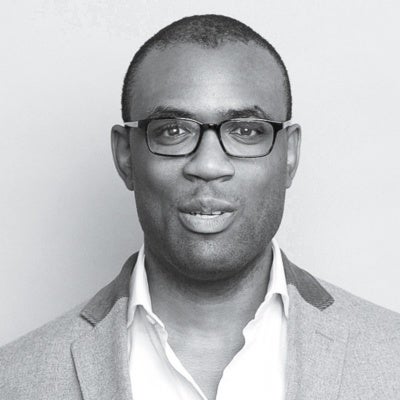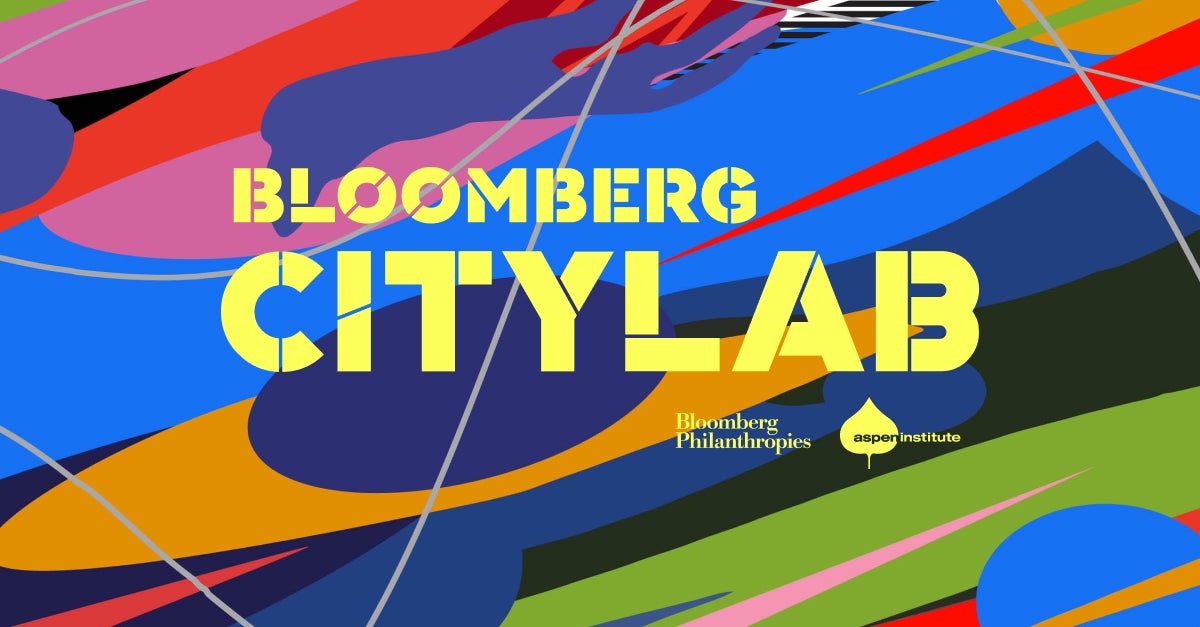Aaron Walker is founder and CEO of Camelback Ventures. Camelback leads a social venture fellowship that levels the playing field for underrepresented entrepreneurs by providing access to coaching, connections and capital.
This interview is part of the Aspen Institute Center for Urban Innovation’s series of conversations with inclusive innovation practitioners.
Jennifer Bradley: What are the values that guide your work?

Aaron Walker, Founder and CEO of Camelback Ventures
Aaron Walker: When you ask me that question I think about a quote that I’ve just kept with me for, I don’t know, probably two decades at this point, from Jackie Robinson. He said, “A life is not important except for the impact that it has on others.” That has been a guiding value in a lot of the choices that I’ve made, from being a teacher to going to law school, to the reason why I left the law to do the work that I’m doing now with Camelback, which is just trying to use this little time that I have here to try to create something that has a positive impact on other folks and helps them to be successful in whatever way that they have imagined for themselves.
JB: Have you ever been in a situation in which some of your values have been in conflict? If so, what did you do?
AW: The first thing that comes to mind is trying to understand white supremacy culture, and how it manifests itself in a variety of different ways, and how even as a leader of color you can begin to uphold that culture as well.
One of the things I read this past year was a collaborative document about how to recognize, break down, and heal with alternatives to white supremacy culture. One of the examples that they talked about as contributing to the building of white supremacy culture is this idea that bigger is better, more is better.
When I think about that idea, and I contrast it with the idea of running an organization, and wanting to grow it, and wanting to scale it, and raise more money, and hire more people, and have more impact, how do you reconcile those? How do you reconcile those key things? Is our desire to achieve that even as an organization that is run by a person of color and largely serves people of color, is that still us? Assuming and thinking we’re going to play into this system, too, what it means for us to grow and have more impact to be more, I don’t know.
What I’ve told myself, and it could just be me trying to make myself feel better, is that maybe it’s okay if we are intentional about it, and we’re not just doing it for growth’s sake, but that we’re trying to maintain quality as we go along. We’re not going to try to do more or be more if we can’t maintain the quality, and the outcomes, and the results that we think we’ve been able to get at a particular smaller size.
That’s something that recently I’ve been trying to wrestle with from a values perspective.
JB: What do you think is the purpose of values?
AW: The purpose of values is to make hard decisions easier. Not easy, but easier. The short answer is, how do you look at a situation and say, “What should I do here?” If it’s a difficult choice, and your values can maybe help you narrow down the set of choices that you should make, and that might not necessarily be “the right choices,” but they align with your values.
One of the values we have as an organization is to give first. If we have a value as an organization to give first, then it doesn’t mean that those choices are always easy, but it means that what your values suggest is that if you can give, you should, as opposed to maybe some other value choice that you might make, which might lead you down a different path.
JB: Can you talk about a time that your organizational values guided you through a difficult decision?
AW: This is probably the hardest question. One of our values as an organization is to be unafraid of failure. How do you as a leader of color, where you feel like your margin for error is smaller, how do you “move fast and break things?” That feels like that’s sort of a privileged, white, male viewpoint on the world. But you know as an entrepreneur that you’re not going to be able to evolve and you’re not going to be able to iterate if you’re not willing to make mistakes, and if you’re not willing to try things out, and be okay with being wrong, and being okay with the failure that might come from that.
This year we created a summit called the Ecosystem Summit. We were trying to figure out how can we bring our ecosystems together around issues of inclusive innovation and entrepreneurs of color, which is something we had never done before. There was definitely tension around, “Do we go for it knowing that in our ideal world and ideal minds we would give ourselves more time knowing that sometimes we only get one shot at this?” Understanding that we have to be unafraid of failure, we have to walk, continue to walk forward. There was a point where it was like, “Should we actually do this or not?” Ultimately, we did and it was not perfect by any means, but I think if we had a different ethos, we might have made a different choice around some of those things.
The different choice could have been saying, “Hey, we have a standard for excellence and we are questioning whether we can do that in the time frame allotted.” We could have gone to partners and said, “Hey, you know what? Here’s what we think we should do. We know that you may not like that choice and may ask us to return funds or unravel some of this stuff.”
As you can imagine, those are difficult conversations to have. The money is hard enough to come by as it is. The relationships and partnerships are hard enough to come by as it is. That could have been a choice that we could have made as well. I’m not saying one is necessarily better than the other. A management consultant might say that we made the wrong one, but I think if we’re basing this in values and looking at a decision like that and trying to say, “We have to make a decision. Let’s ground it in the values that we have as an organization and know that at least we know why we’re doing it.”
JB: How do you hold yourself accountable to your values?
AW: We wrote a Camelback Ventures Manifesto this year, which sits on my desk and stares me in the face every day. It is a call to action to be ruthless for good, which is our mantra. This encapsulates our organizational values; our Fellows tell us that it has resonated with them as well and encourages them to keep going.
Maybe this is something that comes as a founder and as a leader up in the organization, because you just spend so much time talking about your why, and trying to use storytelling and other narratives to help people understand why you do what you do and why it’s important. There’s maybe an occupational advantage for me because I’m always talking about them. It just leaves me more in a position to have them be front of mind and to say, “Am I doing this? Am I not doing it?
My team is pretty good at holding me to account to a lot of things. I’ve tried to create a culture where my role is not any more important than anyone else’s, it’s just different. And that means that my team should and can hold me to account, too, and in some ways I need them to. I need them to hold me to account to the things that I say are our values, or our team norms, or how we’re going to operate as an organization and trying to create a culture where, as a leader and as a manager, I’m supposed to make the people want to go to work with me, but their job is also to make me better.
JB: Is there anything you want to say about values or that you want to share with the readers that the questions that I’ve asked didn’t elicit?
AW: Our public policy choices are a reflection of our values, and what we hold to be important, and who we value, and what we value. I don’t think that they’re inextricably decoupled. I think they are inextricably linked. I think we can find what our values actually are in our policy decisions.
This interview has been condensed and edited for clarity.
This blog series is supported by the Citi Foundation, a vital early supporter of the Center for Urban Innovation at the Aspen Institute. With the Citi Foundation’s help, the Center convened leading-edge practitioners to develop a shared set of principles to guide a cross-sector approach to inclusive innovation in low- and middle-income neighborhoods, and to determine how the Aspen Institute could support this practice.

